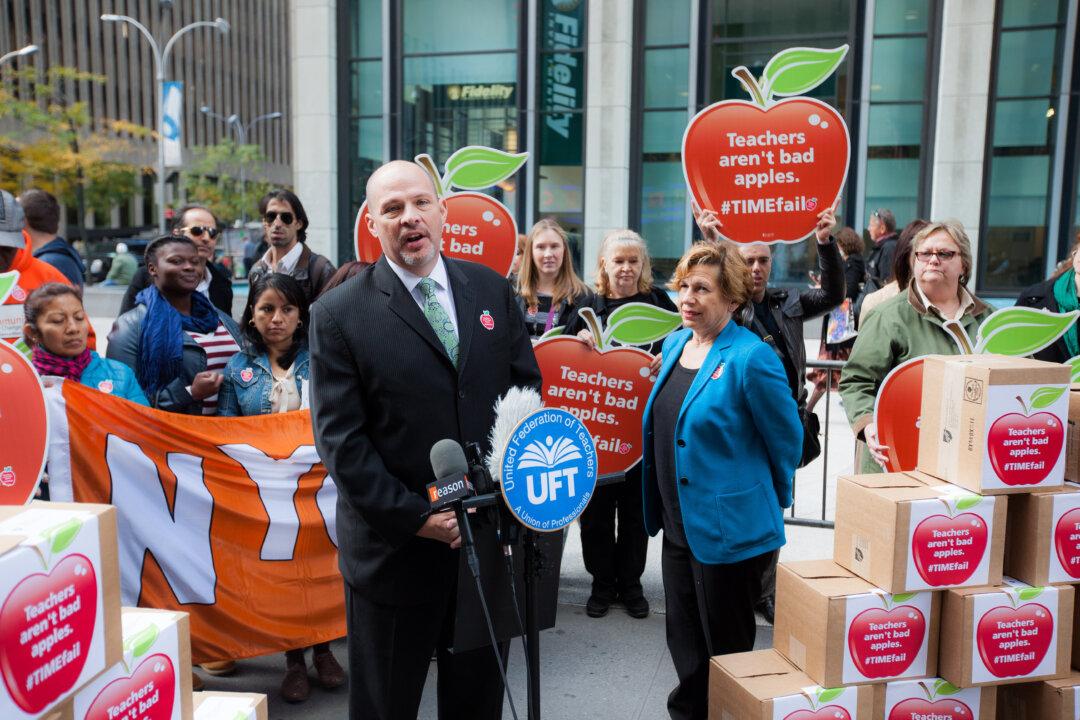NEW YORK—If there’s something news publications have learned since their earliest days, it is that controversy sells oh-so-easily. That is, if one doesn’t step on the toes of a behemoth in the process.
That may end up being the lesson for Time magazine, whose cover last week sported a gavel suspended above an apple symbolizing millionaires using lawsuits to go after “bad teachers” protected by tenure.
Yet, what started as a witty way to spark a debate now threatens the economic interests of the publication.
Within a week of publication, teachers unions handed over 100,000-signature online petition and comments asking Time to apologize for the cover, saying it generalizes all teachers as bad.
Natasha Capers, parent organizer with union-allied Coalition for Educational Justice, fumed over the Time cover at a Thursday press conference organized by two major teachers unions, the city’s United Federation of Teachers (UFT) and the nation’s American Federation of Teachers (AFT).
She accused Time of “demonizing” teachers and striking divisions between teachers and communities.
“We got rid of the mayor who continued to do that,” Capers said, referring to tough-on-unions Michael Bloomberg. “And we'll get rid of the magazine too.”
However futile Caper’s threat may sound to a magazine with millions of subscribers, the campaign may have a real monetary impact.
Over 11,000 of the petitioners were Time subscribers and over 64,000 acknowledged using the magazine in their schools.
At least two teachers present at the press conference said they would cancel their Time subscriptions and many more are announcing the same, as suggested by Twitter posts under “#TIMEfail” hash-tag.
It is not quite clear though how far the sentiment has spread through the AFT’s almost 900,000 membership or through the public in general.






